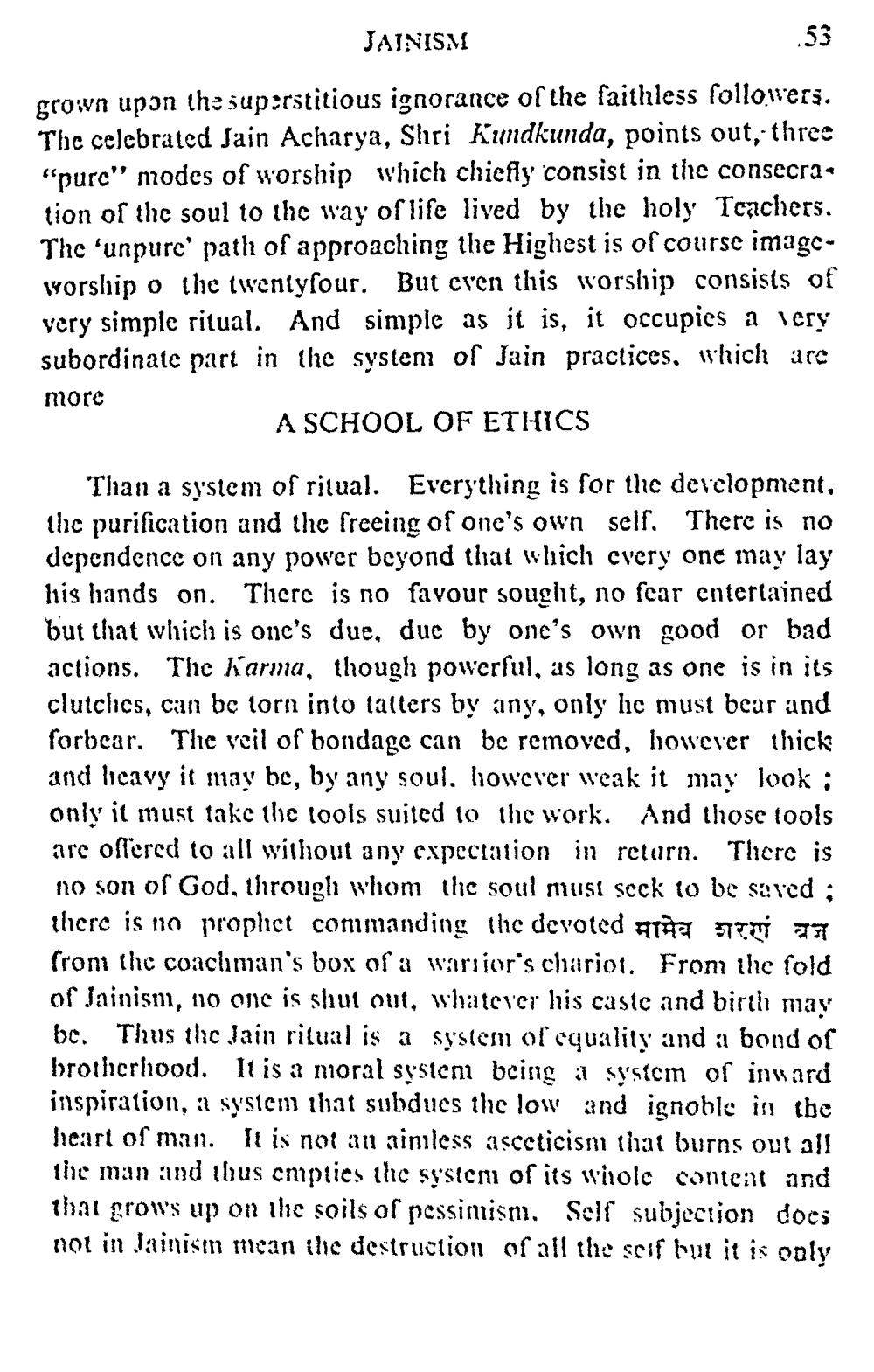________________
JAINISM
.53
grown upon the superstitious ignorance of the faithless followers. The celebrated Jain Acharya, Shri Kundkunda, points out, three "pure" modes of worship which chiefly consist in the consecra< tion of the soul to the way of life lived by the holy Teachers. The 'unpure' path of approaching the Highest is of course imageworship of the twentyfour. But even this worship consists of very simple ritual. And simple as it is, it occupies a very subordinate part in the system of Jain practices, which are A SCHOOL OF ETHICS
more
Than a system of ritual. Everything is for the development, the purification and the freeing of one's own self. There is no dependence on any power beyond that which every one may lay his hands on. There is no favour sought, no fear entertained but that which is one's due, due by one's own good or bad actions. The Karma, though powerful, as long as one is in its clutches, can be torn into tatters by any, only he must bear and forbear. The veil of bondage can be removed, however thick and heavy it may be, by any soul, however weak it may look ; only it must take the tools suited to the work. And those tools are offered to all without any expectation in return. There is no son of God, through whom the soul must seek to be saved ; there is no prophet commanding the devoted ama nec za from the coachman's box of a warrior's chariot. From the fold of Jainism, no one is shut out, whatever his caste and birth may be. Thus the Jain ritual is a system of equality and a bond of brotherhood. It is a moral system being a system of inward inspiration, a system that subdues the low and ignoble in the heart of man. It is not an aimless asceticism that burns out all the man and thus empties the system of its whole content and that grows up on the soils of pessimism. Self subjection does not in Jainism mean the destruction of all the self but it is only




